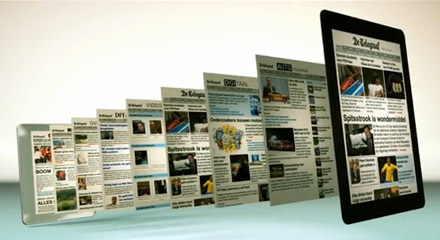
Although it pains me to admit it as a journalist, I must confess that I am not very optimistic about the future of the so-called press. Not because paper support may be in danger of disappearing, which does not cease to be a reasonable risk, but because I see that companies in the sector have a very clear business model that allows their viability in the future in the medium or long term. Thus, it has been noted that after the experiences in recent years, some companies, if not most, have reacted slowly and inadequately to new challenges.
As I see it, journalistic information will always exist, but we have to find a profitable way for its dissemination. In this sense, we must not forget that the basis of all business news is information, not the support (paper or digital) or the form of (physical or intangible) distribution.
Possibly since the late 60s and early 70s, when the first phase of technological transformation happened, the change in the composition and printing systems, there has never before been a crisis that affecting the newspaper industry such as that experienced in the last seven years. While this conversion, along with the later stages of computerization of newsrooms and change in visual structures (design), helped save the industry, today technological advances, especially the emergence of internet as a fundamental support for the dissemination of information, even providing an undeniable development potential for daily newspapers, have raised new problems for which solutions have not yet been found.
The brutal drop in advertising in recent years, hovering around 50%, and the disaffection shown by new generations towards traditional newspapers, has caused the profitability of newspapers to fall to numbers below that which is sustainable and so therefore their survival is highly questionable. Although in recent times, everyone seems to see clearly that to survive, newspaper companies have to make digital media profitable, that is to say, the so-called digital editions of their editions on paper, something that is proving to be more complex than it seemed at first.
Being in new media, without knowing why
Since the beginning of the emergence of so-called "new media", press editors knew that they "should be" present in them, but did not quite know how or why. They had only one thing clear: "if we are not, others will take our place and displace us." Something similar happened in the Spanish press in the early 80s with the introduction of Monday edition of the daily newspapers. Until then, the "Monday Pages" were a provincial publication which monopolized exclusively that day of the week (as they were the only ones to be authorised to do so). However, when the first national newspaper started publishing on Mondays, all others had no choice but to follow their lead or risk losing readers to their own detriment. In short, this is what some authors have called the "cannibalization effect", that is to say, the possibility that competition could transfer their content to these new media (internet) and readers of our newspaper will go with them if we do not do the same.







